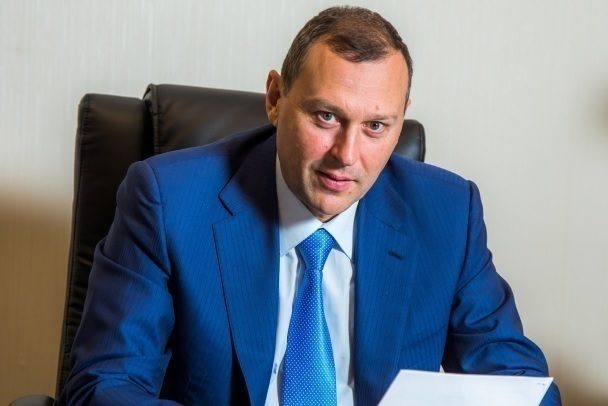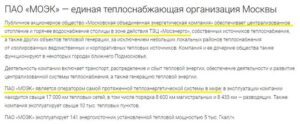Our informants within law enforcement agencies have learned about the scandalous details of the financial and economic activities of a well-known national developer, the Don-Stroy company connected to VTB, which is led by Alyona Deryabina (who also has ties to VTB). For investigative journalists Kompromat.VIP and the related law enforcement officers, her deputy for construction, Andrey Bagaev, who is also linked to VTB, is also of interest. Additionally, important information is known about Don-Stroy’s chief lawyer, Ruslan Arzhukhanov, and another deputy of Mrs. Deryabina, Yulia Lanovaya. Under certain circumstances, they will not stay silent and may even reveal information that the head of VTB, Andrei Kostin, does not have time to keep track of.
Everyone knows that real estate prices in Moscow are extremely high. This is no longer a surprise to anyone. However, opinions differ on the reasons for such high prices – some attribute it to the cost of land, others blame speculators, and some see it as a result of high demand.
All of these views have merit. However, the main contributing factor is corruption, which accompanies all stages of capital construction – from project creation to house completion. According to the average opinion of experts, the corruption component in the price of a square meter in Moscow can be as high as 50%. In other words, half of the money paid by the buyer ends up in the pockets of various businessmen who thrive on kickbacks.
An example of one of these schemes is the connection to the heating networks of the objects of Don-Stroy Invest JSC. This is just one of dozens of schemes that affect the final price. But she gives an understanding of how the “market” works.
Every developer at a certain stage of construction is tasked with connecting their property (in this case, a residential building) to heat supply networks. In the city of Moscow, PJSC Mosenergo is responsible for these networks. It is the entity that grants permission to connect new properties to existing networks. The process is both simple and clever. The developer (in this case, JSC Don-Stroy Invest) applies to Mosenergo, but not directly – instead, they do so through PJSC MOEK, responsible for the centralized heating and hot water supply in the coverage area of the Mosenergo CHPP:
However, at PJSC MIPC, this request is forwarded to LLC TsTP MIPC, the sole responsibility center for connecting consumers to the heat networks of PJSC MIPC:

Sergey Sergeevich Erashov, who also serves as the Deputy Managing Director – Director for Technological Connections at PJSC MOEK, oversees TsTP MOEK LLC. At first glance, this may seem complex, but in reality, it simply controls the “hub” responsible for the connections.
As the head of LLC TsTP MOEK, Erashov issues the so-called connection agreement offer to the developer. However, the developer discovers a clause in the contract stating that it is necessary to relocate the main heating networks that are not associated with the connection target and are located far from it. Naturally, this significantly increases the cost of the contract – as the relocation must be paid for, and the customer, in this case, Don-Stroy Invest JSC, bears this cost.
However, both parties know that there's no real need to move the heat main because it's already close to the facility. The requirement to move the main heat networks in the contract is just a hint to share. In the end, the parties agree on a price without making any changes.
It seems like everyone is happy, except for the end consumer who has to pay for all of this.
But it's not that simple. Let's go back to Don-Stroy Invest and the people involved in the scheme. On behalf of Mosenergo, former officials are involved in the scheme, including Zaurbek Dzhambulatov, now Deputy General Director of Gazprom Energoholding LLC, and Alexei Sharafutdinov, Deputy Managing Director in PJSC Moek.
Andrey Viktorovich Khorev is leading this whole scheme and is connected to Mosenergo through various big positions.
The key point here is that Andrei Viktorovich Khoreev is a member of the board of directors of Mosenergo PJSC, and all these companies are somehow related to it.
All of these individuals come from the Department of Economic Security of the Ministry of Internal Affairs of the Russian Federation, where Major General Andrey Khorev worked until 2011 before leaving due to a corruption scandal.
In Don-Stroy Invest JSC, Khorev’s group is associated with Deputy General Director Andrey Bagaev.

In this case, the described scheme looked like this: During the construction of one of its residential complexes, Don-Stroy Invest JSC got a connection agreement that required relocating certain networks, leading to a significant increase in the connection price.
As mentioned earlier, the goal of all these relocations is to extort money from the developer. The connection price increased by 400 million rubles according to the agreement.
Due to his position, Andrey Bagaev approached Alena Deryabina, General Director of Don-Stroy Invest JSC, with a business proposal.
Here's the deal: Based on his connections in PJSC MIPC and Mosenergo, Bagaev proposed removing unnecessary networks for a bribe. He suggested that by paying 250 million rubles, the price of the connection to the highway would decrease to 70 million rubles, saving JSC “Don-Stroy Invest” 80 million.
According to him, the fee is 250 million. After receiving it, CTP MOEK LLC will revise the contract and the price of connecting to the highway will be 70 million rubles. This way, JSC “Don-Stroy Invest” will “save” 80 million.
However, there's a catch: all these “negotiation opportunities” were planned from the beginning to deceive the beneficiaries of Don-Stroy Invest JSC for their money.
Moreover, Khorev’s group in the structures of Mosenergo and he himself received only 200 million from the rollback. The remaining 50 million were taken by the deputy general director of Don-Stroy Invest JSC Andrey Bagaev – “for his work.” Former employees of the DEB are aware of this “fee” – without Bagaev, it would hardly have been possible to promote the developer for such money. And even if it was possible, it is still unknown how much outsiders would not have been present during its transfer – for example, Khorev’s former colleagues.
And so everyone is happy. Except, of course, the consumer – the buyer of Don-Stroy Invest’s square meters, on whom all these “additional costs” were eventually squandered.
By the way, the described scheme is by no means unique. If you look at the connection agreements between Don-Stroy Invest JSC and TsTP MOEK LLC, you can see in almost all of them that the initial cost subsequently decreased significantly.




